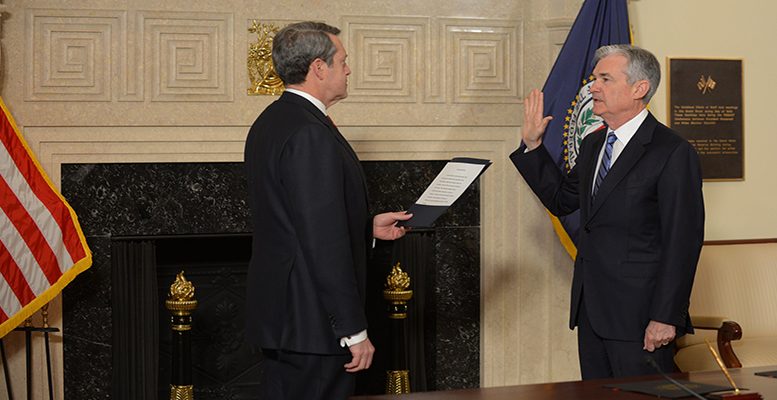Jerome Powell is bound to have a crash landing in the Federal Reserve. From the very beginning of his mandate, pressure is mounting on him to raise rates. An unpalatable choice for someone who hoped to follow Janet Yellen’s wait-and-see stance for as long as he could. The unexpected strength of US growth, plus a surge in salaries, have driven up interest rates and reignited inflationary expectations. Investors are betting a monetary twist will follow, as the Fed cannot linger behind the curve.
The Stock Exchange has experienced a correction, but the worse is yet to come should bonds plummet as expected. The good old days which allowed running a loose monetary policy, while loitering on gradual rate promises, are over. Jeremy Powell faces the dilemma of pleasing the markets or resisting their pleas.
The first option offers little comfort. Accelerating rate hikes might fuel a tempest in the bond market and the financial system. For all the tough lessons the last crash taught over-leveraged States, enterprises and individuals, global indebtedness is higher now than before the crisis. In particular, emerging economies have learned to enjoy living beyond their means. A swift upsurge in interests coupled with a stronger greenback might end in total disaster.
Resisting the pressure also involves paying a high price. It fuels volatility as frustrated investors lose their faith in the Fed and discount future hard adjustments. Yet Jerome Powell would be well advised to wait for fresh figures to confirm the bonanza dream. Any false step might be devastating. He can rely on the relatively flattened curve to provide him with a respite. Just like chess players, he should think twice before he moves. Volatility might bother investors. But the prospect of blowing up the financial markets, should skyrocketing interests turn into widespread defaults, does merit an in-depth appraisal before embarking on such a reckless adventure.
While the Fed accumulates enough munition in its balance sheet to curb any unwarranted liquidity glut, any change in its sales policy might trigger a backlash on US sovereigns. It can only use rate hikes to tighten the monetary stance. Yet any undue move might bring ominous consequences for the financial markets and precipitate a harsh downturn. Maintaining a cautious line of action seems the best alternative.





